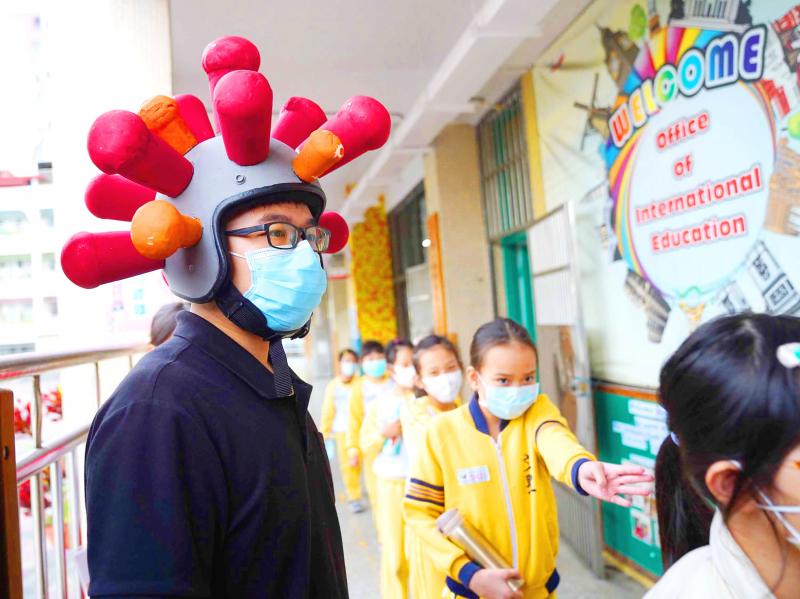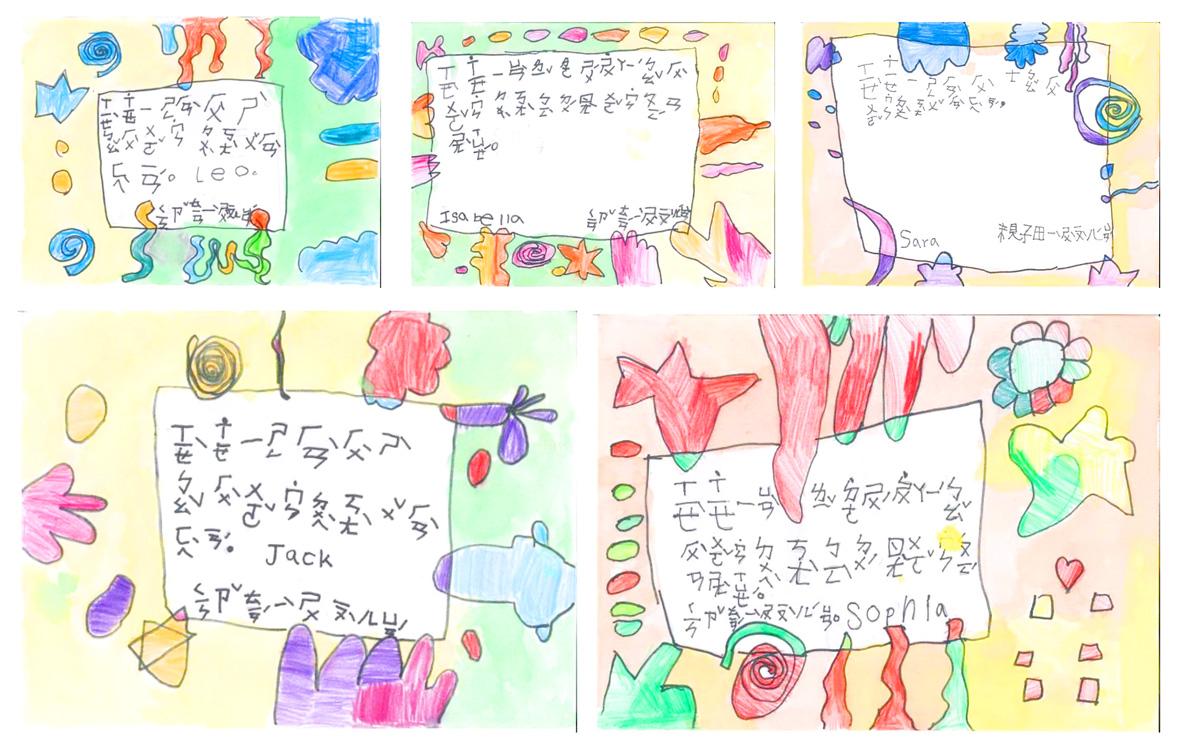The Central Epidemic Command Center (CECC) yesterday disclosed the nation’s capacity for treating COVID-19 patients, adding that it has 34 facilities capable of analyzing 3,800 tests per day.
The global outbreak of COVID-19 is still severe, and clustered infections in local communities or healthcare facilities have been reported in many countries, said Deputy Minister of Health and Welfare Hsueh Jui-yuan (薛瑞元), who heads the CECC’s medical response division.
The center has six main strategies to ensure that Taiwan’s healthcare system has sufficient medical capacity, he said.

Photo: CNA
While about 1,500 tests are being performed every day, the nation’s “expanded COVID-19 testing capacity” has reached about 3,800 tests per day, which can be analyzed at 34 testing facilities — 16 in northern Taiwan, 10 in southern Taiwan, seven in central Taiwan and one in eastern Taiwan, he said.
The “enhanced community-based surveillance” strategy includes increasing tests on high-risk groups and establishing a network of testing stations in communities, he said.
High-risk groups include healthcare workers, airline crew members, passengers who returned on a flight from New York in which 10 confirmed cases were detected and people who visited overcrowded tourist spots during the four-day Tomb Sweeping holiday, Hsueh said.

Photo: Chen Chien-chih, Taipei Times
There are 163 hospitals capable of performing tests on suspected cases, 143 responsive and isolation hospitals designated for admitting patients with mild symptoms, and 52 regional hospitals and medical centers that can take in patients with severe symptoms, he said.
There are four phases in the “expanding capacity for hospitalizing COVID-19 patients” strategy for designated responsive hospitals, Hsueh said.
They include admitting patients to negative-pressure isolation wards or single rooms, setting up exclusive COVID-19 departments, suspending the admittance of non-COVID-19 patients and resettling non-COVID-19 patients to other hospitals, he said.
As part of the “making an inventory of hospital beds and respirators” strategy, he said that there are 2,713 hospitals beds, including in negative-pressure isolation wards and COVID-19-designated wards, that can be used for treating infected patients, with 1,597 beds, or 59 percent, still vacant.
That capacity could expand to 20,985 beds if a widespread local outbreak occurs, Hsueh said.
About 1,300 of the 9,932 respirators in the nation are available, and the center expects to increase capacity to about 2,200, he added.
Minister of Health and Welfare Chen Shih-chung (陳時中), who heads the CECC, said the center also hopes to continue its strategy of “expanding the capacity of centralized quarantine” from 1,553 rooms at 13 quarantine centers to more than 3,000 rooms.
Hsueh said the center has created principles for “implementing a triage system to admit or refer COVID-19 patients” to different levels of hospitals according to each patient’s condition.
Meanwhile, the CECC reported three new cases in Taiwan, all imported.
Chen said that the three confirmed cases are two women and one man, all in their 20s, who returned from France, the UK and the US between Monday and Saturday last week.
Case No. 374, a man who studies in the UK, and case No. 375, a woman who visited her family in France, as well as visiting Belgium, the Netherlands and the UK during her trip, were under home quarantine when they experienced symptoms and reported for testing, he said.
Case No. 376 is a woman who studies in the US. She returned to Taiwan on the same flight — China Airlines (華航) Flight CI011 from New York to Taipei on Monday last week — as several other previously reported cases, so she was under home isolation when she began experiencing symptoms on Thursday last week, Chen said.
As 10 passengers on the flight have tested positive for COVID-19 so far, Centers for Disease Control Deputy Director-General Chuang Jen-hsiang (莊人祥) said that the center has decided to test all of its 323 passengers and 13 crew members.

A Ministry of Foreign Affairs official yesterday said that a delegation that visited China for an APEC meeting did not receive any kind of treatment that downgraded Taiwan’s sovereignty. Department of International Organizations Director-General Jonathan Sun (孫儉元) said that he and a group of ministry officials visited Shenzhen, China, to attend the APEC Informal Senior Officials’ Meeting last month. The trip went “smoothly and safely” for all Taiwanese delegates, as the Chinese side arranged the trip in accordance with long-standing practices, Sun said at the ministry’s weekly briefing. The Taiwanese group did not encounter any political suppression, he said. Sun made the remarks when

The Taiwanese passport ranked 33rd in a global listing of passports by convenience this month, rising three places from last month’s ranking, but matching its position in January last year. The Henley Passport Index, an international ranking of passports by the number of designations its holder can travel to without a visa, showed that the Taiwan passport enables holders to travel to 139 countries and territories without a visa. Singapore’s passport was ranked the most powerful with visa-free access to 192 destinations out of 227, according to the index published on Tuesday by UK-based migration investment consultancy firm Henley and Partners. Japan’s and

BROAD AGREEMENT: The two are nearing a trade deal to reduce Taiwan’s tariff to 15% and a commitment for TSMC to build five more fabs, a ‘New York Times’ report said Taiwan and the US have reached a broad consensus on a trade deal, the Executive Yuan’s Office of Trade Negotiations said yesterday, after a report said that Washington is set to reduce Taiwan’s tariff rate to 15 percent. The New York Times on Monday reported that the two nations are nearing a trade deal to reduce Taiwan’s tariff rate to 15 percent and commit Taiwan Semiconductor Manufacturing Co (TSMC, 台積電) to building at least five more facilities in the US. “The agreement, which has been under negotiation for months, is being legally scrubbed and could be announced this month,” the paper said,

NATIONAL SECURITY THREAT: An official said that Guan Guan’s comments had gone beyond the threshold of free speech, as she advocated for the destruction of the ROC China-born media influencer Guan Guan’s (關關) residency permit has been revoked for repeatedly posting pro-China content that threatens national security, the National Immigration Agency said yesterday. Guan Guan has said many controversial things in her videos posted to Douyin (抖音), including “the red flag will soon be painted all over Taiwan” and “Taiwan is an inseparable part of China,” while expressing hope for expedited “reunification.” The agency received multiple reports alleging that Guan Guan had advocated for armed reunification last year. After investigating, the agency last month issued a notice requiring her to appear and account for her actions. Guan Guan appeared as required,